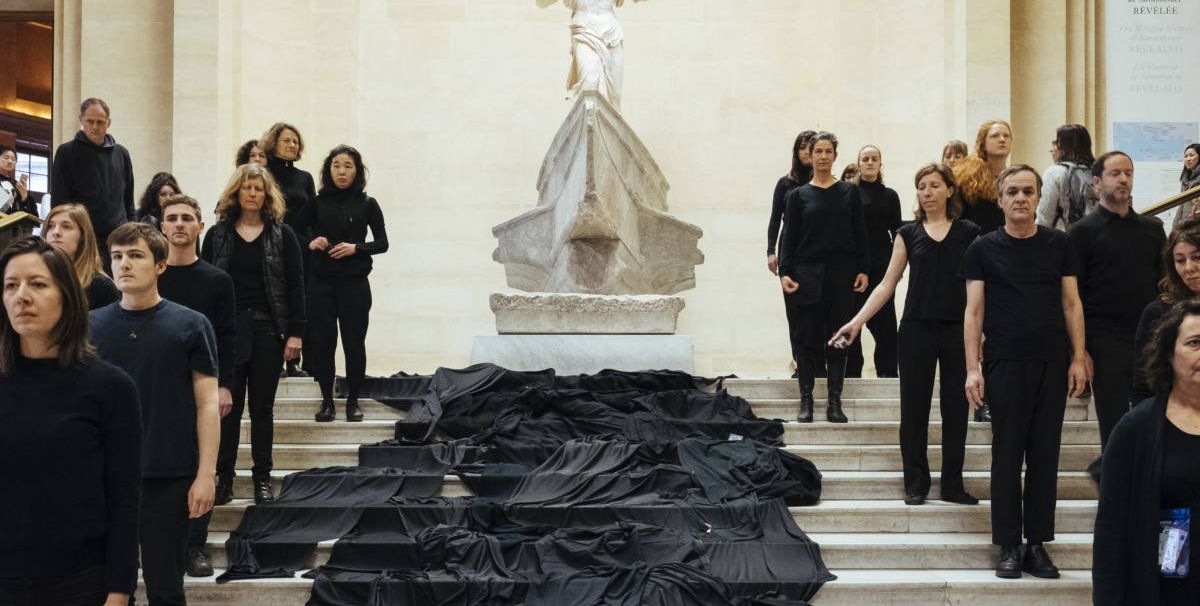Visitors to the Louvre Museum in Paris on Sunday, 5 March may have spotted a performance piece of sorts—by anti-oil activists, not artists—on the staircase leading to the Winged Victory of Samothrace, one of the museum’s most famous pieces and a favourite gathering spot in the Louvre. Around 40 activists, clad all in black, gathered on the steps and removed their jackets, shirts and scarves in a three-minute choreographed gesture, draping them down the middle of the staircase so that they resembled an oil spill.
This was the first public action inside of the museum by the Libérons le Louvre (Liberate the Louvre) campaign, launched in January to demand an end to two decades of sponsorship of the museum by the French multinational energy giant Total. It was organised by the climate change grassroots group 350.org as part of the international initiative Fossil Free (in France, “Zéro Fossile”).
“By accepting corporate donations from fossil fuel companies like Total, the Louvre Museum not only damages its own reputation, but it helps foster the idea that we can continue to use fossil fuels without harm,” reads Fossil Free’s online petition, which has garnered around 10,000 signatures since January.
The Louvre’s director Jean-Luc Martinez defended Total’s sponsorship of the museum in a letter in January, discussing its support of initiatives. These include annual celebrations for International Women’s Day that help bring underserved visitors to the museum, and the renovation of displays for the Islamic Arts collection.
The galleries housing ancient Islamic objects, coincidentally, are among the areas of the museum that had to be evacuated last June due to flooding. “There’s a bitter irony that the fossil fuel companies driving drastic changes to our climate,” the Fossil Free Louvre campaign homepage notes, “are the ones profiting from the veneer of respectability that their Louvre partnership gives them.”


